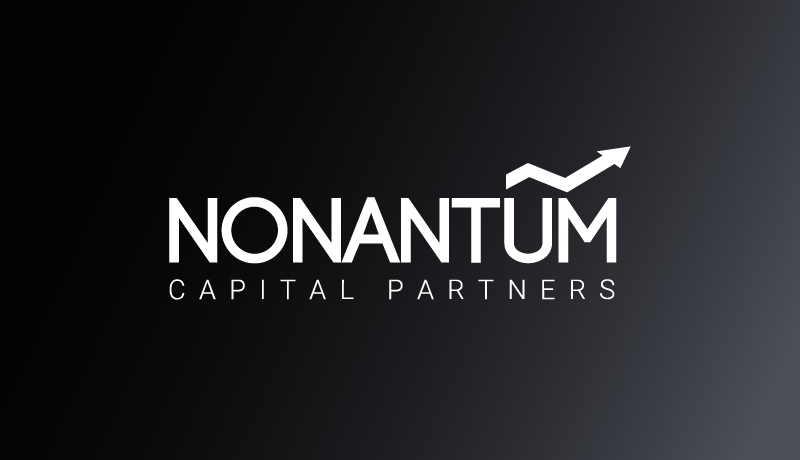High volumes of non-disclosure agreements (NDAs) are a given for large investment banks and alternative asset managers. Unfortunately, so are the drawbacks of traditional solutions for NDA management.
When neither insourcing nor traditional legal outsourcing is efficient or cost-effective, what can you do to effectively handle a high volume of buy- or sell-side NDAs?
Join 700+ private market firms that rely on Ontra’s Contract Automation solution to manage routine contracts and close deals faster. Our Contract Automation solution combines proprietary artificial intelligence (AI), OpenAI’s GPT-4, and a global network of lawyers to streamline buy- and sell-side NDA negotiations and management.
How do you manage your non-disclosure agreements?
Do you keep your NDAs in-house or send them to your outside law firm?
Either way, Ontra is the solution for you. Your firm might tap internal resources to handle routine legal work like NDAs, but these individuals often lack the bandwidth. Time spent handling NDAs comes at a cost, as these time-consuming agreements take time away from mission-critical work.
In some cases, the business professionals handling your NDAs may also lack the expertise required to negotiate and manage contracts effectively. They could agree to off-market or inconsistent terms or mismanage negotiations to the point of damaging a potential business relationship.
Some firms outsource NDAs to a traditional law firm. However, the work usually falls to junior associates with minimal experience, while the law firm charges their costly standard rates. Associates also could mismanage negotiations if they’re unaware of market terms or your firm’s specific preferences.
Why you should automate your NDA management
NDAs, also known as confidentiality agreements, are a routine, yet important step in the private fund lifecycle. In recent years, you and your competitors have had to tackle a growing number of NDAs each year, yet many firms haven’t updated their processes to speed up workflows.
The disadvantages of burdening in-house professionals with NDAs:
- NDAs consume too much time, pulling in-house talent away from more strategic tasks.
- NDAs can burden in-house talent to the detriment of work-life balance, lowering morale.
- Non-legal professionals could agree to off-market and inconsistent terms.
- Non-legal professionals could prolong negotiations and damage the potential business relationship.
- Internal teams lack the bandwidth to scale processes and keep up with a growing volume of routine agreements.
The disadvantages of sending NDAs to outside legal counsel:
- Law firms typically assign NDAs to junior associates.
- Inexperienced lawyers could agree to off-market and inconsistent terms.
- Inexperienced lawyers could prolong negotiations and damage the potential business relationship.
- Law firms typically have a slow contract turnaround time.
- Your firm pays a high rate for routine, time-consuming tasks.
- Law firms often lack the ability to scale NDA negotiations to keep up with a growing volume.
3 Ways to streamline NDA management
1. Implement NDA management software
Outsourcing NDAs to a third party can be the fastest and most efficient way to handle these routine agreements. However, you have to take precautions and engage the right kind of third party with industry expertise.
An alternative legal service provider (ALSP) can be an ideal option for managing NDAs and other recurring agreements. ALSPs offer a combination of purpose-built technology and services that enable them to perform a legal support function at a lower cost than traditional internal or external counsel. The four broad types of ALSPs are independent ALSPs like Ontra, the big four accounting firms, law firms’ subsidiary companies, and legal staffing agencies.
The key here is to look for a technology provider, preferably one at the forefront of AI technology for contracts, instead of an NDA outsourcing provider focused on just staffing. Truly efficient and cost-effective NDA management comes from AI-driven processes and automation these days. With AI, NDA automation can drastically cut down on turnaround times, enabling parties to access data rooms and perform due diligence sooner.
2. Prioritize deep industry expertise
Carefully consider your options when choosing an NDA outsourcing provider. Although sell- and buy-side NDAs are common agreements for corporate transactions, effective negotiations and NDA management still require industry expertise. For the best return on your investment, select a partner that offers access to highly skilled lawyers with relevant private markets experience and data.
Ontra matches new Contract Automation customers with one or more fully vetted independent lawyers. These professionals are dedicated to your firm, ensuring they get to know your contract playbook inside and out. Ontra has high standards for its Legal Network, and many of our in-network lawyers have in-depth industry and BigLaw experience.
3. Establish a contract playbook
The key to getting the most out of NDA management software is to establish an NDA playbook for your firm. By defining your preferred and fallback positions, typically based on what’s market-appropriate for your industry, you can drive consistency across your NDAs. With the combination of a defined playbook and AI-powered contract automation, your lawyers can tame negotiations, speed up contract turnaround times, and support more consistent compliance processes.
Contract Automation: A smarter way to manage NDAs with AI
Ontra is much more than a typical NDA outsourcing partner. Ontra’s Contract Automation platform includes NDA management software for private equity and venture capital firms, direct lenders, investment banks, and other private markets firms. Every buy- or sell-side NDA travels through the workflow, from the first stages of negotiations to execution via an electronic signature integration.
Contract Automation from Ontra includes:
Digital Playbooks: Customize and digitally document your negotiation preferences within the platform to create a dynamic, single source of truth and sync your negotiation preferences across internal and external teams.
Markup Builder: Your lawyers can leverage our proprietary, AI-enabled markup tool that surfaces historical contract information and generates suggested markups, limiting the need to start each negotiation from scratch and promoting consistency across NDAs.
Contract Summaries: View an AI-powered summary of the final contract terms shortly after contract execution.
Human-in-the-Loop Reviews: The professionals in Ontra’s global Legal Network handle the NDA negotiations and verify AI outputs.
Data Analytics: Gain visibility into your agreements, run reports and analytics based on your NDA data, and view trends over time.
Ready to efficiently manage high-volume NDAs?
Without the right solution for handling buy- and sell-side NDAs, private equity and investment firms are vulnerable to potential process inefficiencies, higher costs, and poor outcomes. Ontra offers an NDA management solution that combines industry expertise with cutting-edge technology, including proprietary and commercial large language models like GPT-4. As you seamlessly handle higher and higher volumes of NDAs, our platform can scale to match your needs.



